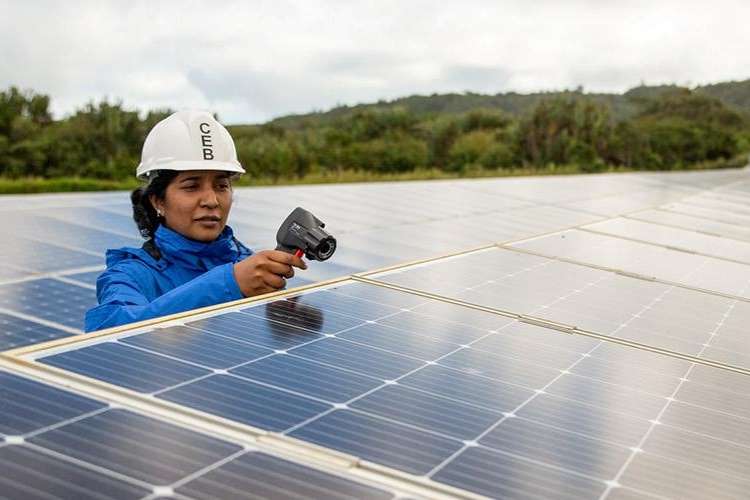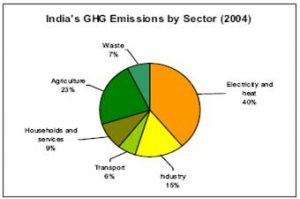
In 2021, Prime Minister Narendra Modi proposed a five-pronged strategy, Panchamrita, for India to help the world achieve the target of limiting global warming to 1.5 degrees above pre-industrial levels. The climate change mitigation strategy announced at COP26 in Glasgow included goals for India for reducing carbon emissions by 1 billion tonne by 2030, meeting 50% of its energy requirements from renewable energy by 2030, and achieving net zero by 2070.
Several Indian companies are in sync with these goals and are playing an important role in achieving them. Like Indian companies leading the way as sustainability champions, Nordic companies are also known for setting aggressive time-bound carbon control goals. These companies are setting an example of innovation in climate change control measures, their integration into growing businesses and are also contributing to the national greenhouse emission goals.
Climate change mitigation efforts by corporates
Nordic companies have long been in the forefront of climate change mitigation efforts. Danish company Vestas, a wind energy leader, topped the 2022 Corporate Knights annual ranking of sustainable corporations. Vestas has announced the goal to become a carbon-neutral company by 2030 without using carbon offsets. It also has set a circularity goal of producing zero-waste wind turbines by 2040. Fjordkraft, one of Norway’s largest power suppliers, has been climate neutral since 2007. It launched its Klimanjaro project in 2016 to enable its suppliers to be climate committed. Swedish restaurant chain Max Burgers launched the world’s first climate-positive menu which includes Green Burgers, in June 2018.

In India, companies such as ITC and ReNew Power are leading the way. The leadership of these companies have played a decisive role in rolling out comprehensive and consistent initiatives to combat climate change. ITC Chairman Sanjiv Puri’s ‘Sustainability 2.0’ Vision is a comprehensive goal-based agenda that raises the bar for sustainability performance. Given the unique requirements of a developing nation, this bold vision calls for inclusive strategies that can support more livelihoods and pursue newer pathways to fight climate change. ReNew Power Chairman Sumant Sinha has also shown strong stewardship and social responsibility toward a sustainable future.
READ I UN report seeks doubling of fund flows for climate change mitigation by 2025
ITC has been following a low-carbon growth strategy and has a stated goal of meeting 100% of its electricity requirements from renewable sources. Presently 42% of its total energy requirements are being met from renewables. It has commissioned its first offsite 14.9 MW solar plant in Tamil Nadu. The division also commissioned a state-of-the-art and future-ready High Pressure Recovery Boiler at the Bhadrachalam mill, replacing conventional soda recovery boilers, leading to significant carbon sequestering. ITC’s pioneering Social Forestry programme has greened over 30,700 acres spread across 19 districts in 9 States. Together with the farm forestry programme, this initiative has greened over a total of 9.5 lakh acres and generated employment for rural households, women, poor tribals and marginal farmers.
According to International Energy Agency data, 40% of the annual global CO2 emissions come from the construction and operation of buildings. ITC has been a pioneer in the green building movement. Its buildings have certifications from the US Green Building Council or from the Indian Green Building Council. Setting an example of responsible luxury, the conglomerate has been a global trailblazer in green hotels. ITC Grand Chola, a super-premium luxury hotel, became the largest hotel in the world to become LEED®️ Zero Carbon certified.
In fact, the first 8 hotels in the world to receive the LEED®️ Zero Carbon certification are all ITC Hotels and today there is a total of 10 ITC Hotel properties that are Net Zero. Also, ITC Sankhya in Bengaluru has become the world’s first data centre to get the same certification. Nordic companies have also been focusing on green buildings. Powerhouse Brattørkaia is the biggest new energy-positive building in Norway and will generate more energy in its operational phase than it would have consumed through its construction and disposal.
Another Indian company that has been working towards mitigating climate change is ReNew Power. In FY22, the company generated 14,263 GWh of clean electricity, enough to power 4 million Indian households, and helped India avoid 0.5% of its annual carbon emissions. ReNew Power achieved carbon neutral status for the second consecutive year for its Scope 1 & 2 GHG emissions. It has a target of becoming Net Zero by 2040 which is more ambitious than the targets of many global energy companies. ReNew has been constantly working to improve energy efficiency across its offices and sites.
Economic growth and climate change mitigation need not be mutually exclusive. This is evident from the initiatives by the Nordic and Indian companies which have consistently followed a low-carbon growth strategy. More firms need to follow the example set by these companies. The Covid-19 pandemic and the Ukraine conflict have distracted the world from pressing climate issues. This makes the efforts of these climate champions stand out. The question is how fast can other companies join in the movement and make meaningful contributions towards climate change mitigation.
(Rajesh Mehta is a leading consultant in international business, innovation and public policy.)
